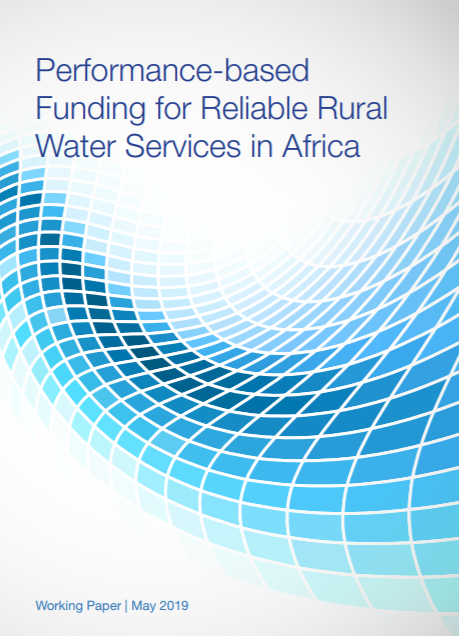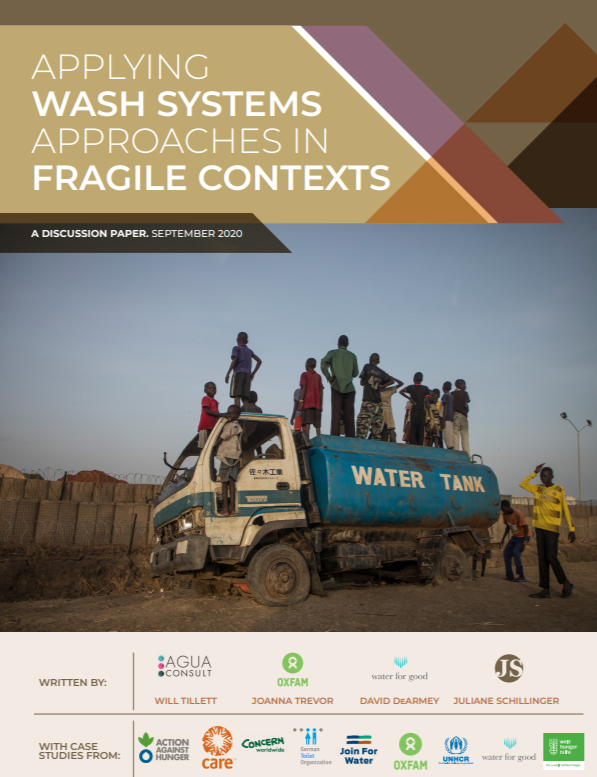Central African Republic
Agenda for Change members working on systems approaches
Please note this is a summary of information. You can learn more on the Water for Good website.
Water for Good has chosen to focus on increasing water access and services in one prefecture, Mambéré-Kadéï, and is in the process of collaboratively developing a district-wide plan for universal access and services. This will be the first prefecture-scale plan for reaching universal water access and services in the Central African Republic (CAR), and therefore presents an opportunity to test and adapt the district-level roadmap approach in a fragile state context.
Within this context, Water for Good operates as a proxy-private water services provider, aiming to strengthen the systems for professionalised borehole drilling and preventative maintenance services at scale. The long-term strategy is to incubate and train highly professionalised water service providers that can deliver services that water users want in coordination with government and NGO partners. While their primary expertise is in service delivery and monitoring, Water for Good recognises their interconnectedness with all aspects of the system and has increasingly focused on how to strengthen the system beyond the service-delivery model. Thus, starting in 2016, Water for Good initiated a process to collaboratively develop a district-wide approach to water services planning with the regional and national government and civil society WASH actors in the prefecture of Mambéré-Kadéï.
Systems strengthening activities
In Mambéré-Kadéï, Water for Good launched a water asset inventory and needs assessment to identify the location and status of all water points and quantify the remaining needs for the population. This baseline informs the development of a prefecture-wide plan to achieve universal Joint Monitoring Programme (JMP) basic service levels by 2020, integrated with a public-private-NGO collaboration for ongoing professional preventative maintenance services.
In 2018, alongside UNICEF and with technical assistance from IRC, Water for Good completed a baseline needs assessment to determine the population and existing water infrastructure in the region and anticipate the level of investment in new water infrastructure and rehabilitation that would be required to achieve universal basic access. Now, these data are an input into a collaborative process for planning, budgeting, and coordination at the regional and national levels and guide Water for Good’s borehole drilling and pump installation investments in the prefecture.
A roadmap is being developed based on Water for Good’s comprehensive baseline assessment. The roles and responsibilities of all of the different stakeholders are being detailed and clarified. Coordination of interventions has become more systematic, and one maintenance system is being studied among key stakeholders who operate in the prefecture. Water for Good closely cooperates with service authorities to ensure quality services, clear communication, and their integral involvement in community training and post-construction monitoring of well-committee management.
Other partners
Entities of the Central Government
National Water Supply and Sanitation Agency (Agence Nationale de l’Eau et de l’Assainissement, ANEA), General Directorate of Water (Direction Générale de l’Hydraulique, DREH/DGH), Ministry of Hydraulics
Local Governments
District-level services of the Ministry of Hydraulics
All others
UNICEF, IRC, Water Mission, the Global Water Center
Accomplishments
- Completed the baseline assessment data analysis with an online map and executive summary report now available in French. The results and data have been shared and presented to the ANEA/DGH partners in Mambere-Kadei.
- Together with UNICEF, Water for Good and the district-level services of the Ministry of Hydraulics have agreed to establish the prefecture-wide plan as the main roadmap for the region. contributing toward a model for universal, reliable water access.
- By 2019, the preventative maintenance service model created by Water for Good operated reliably at scale, reaching over 1,700 unique rural water points that serve over 600,000 rural water users and achieving over 90% functionality.
- The approach to building private sector service delivery capacity has had success in catalysing systems building in CAR, demonstrating that it is possible to improve access to sustainable services and improve the strength of the WASH system in a fragile state.
Challenges
- In the last 20 years, WASH investments in CAR have been largely short-term, project-based, and focused on addressing people’s urgent and basic needs, and as a result, the building-blocks that make up the sector are weak.
- Working on a memorandum of understanding (MOU) with ANEA and DGH in Mambere-Kadei, but the process has been slow.
- Lack of data and a lack of institutional memory have inhibited planning and budgeting processes.
- Government institutions have not had the capacity to capture and analyse data in a way that can inform policy and legal frameworks despite the need for reform and innovation.
How strong are the systems?
To determine how well systems are working, we rely on data derived from Building Blocks, which are manageable ‘sub-systems’ that can be supported and strengthened. Certain building blocks may be more strongly developed or applied at district or national level. Interactions between building blocks are essential.
National level
Building Block
Water
Sanitation
Hygiene
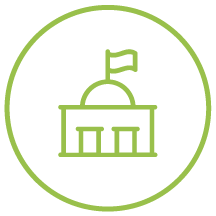
Institutional Arrangements & Coordination
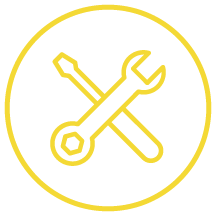
Service Delivery Infrastructure
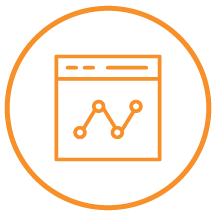
Monitoring

Planning
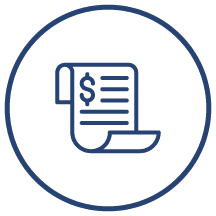
Finance
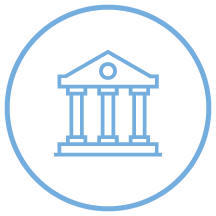
Regulation & Accountability
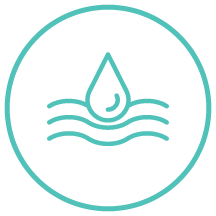
Water Resource Management
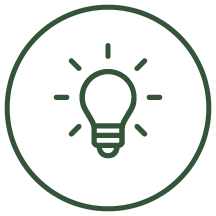
Learning & Adaptation
National
Local
National
